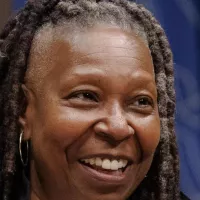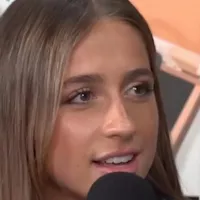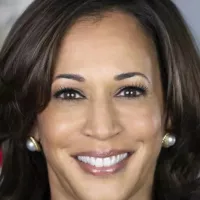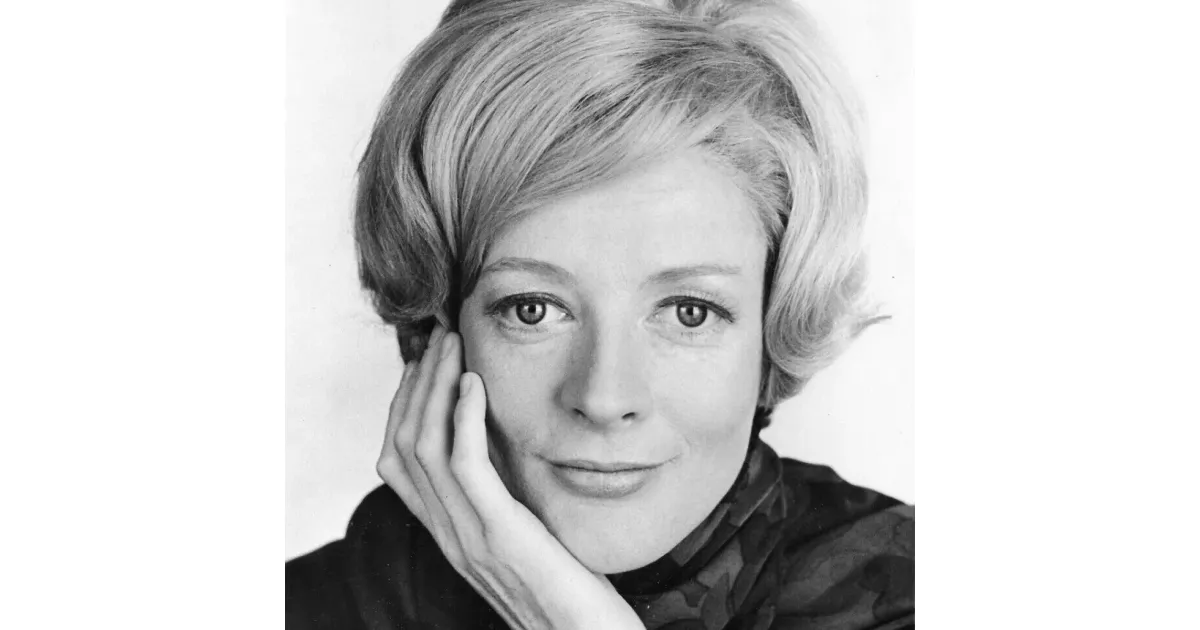Dame Maggie Smith is a highly acclaimed British actress celebrated for her sharp wit and versatility in both comedic and dramatic roles. With a career spanning over seven decades, she has become one of Britain's most recognizable and prolific actresses. Her impressive list of accolades includes two Academy Awards, five BAFTA Awards, four Emmy Awards, three Golden Globe Awards, and a Tony Award. She is also one of the few performers to achieve the Triple Crown of Acting, signifying her success in film, television, and theatre.
1964: Performance in Hay Fever
In 1964, Maggie Smith starred in the production of Hay Fever by Noël Coward.
June 1967: Married actor Robert Stephens
On June 29, 1967, Maggie Smith married actor Robert Stephens. They had two sons, Chris Larkin and Toby Stephens.
1969: Birth of second son Toby Stephens
In 1969, Maggie Smith's second son, Toby Stephens, was born.
1971: Conferred honorary Doctor of Letters (DLitt) degree by the University of St Andrews
In 1971, Maggie Smith was conferred an honorary Doctor of Letters (DLitt) degree by the University of St Andrews.
April 1975: Divorced Robert Stephens
On April 6, 1975, Maggie Smith and Robert Stephens were divorced.
June 1975: Married playwright Beverley Cross
On June 23, 1975, Maggie Smith married playwright Beverley Cross at the Guildford Register Office.
1981: Evening Standard Theatre Award for Virginia
In 1981, Maggie Smith won her third Evening Standard Theatre Award for Best Actress for her role as Virginia Woolf in Edna O'Brien's play, Virginia.
1984: Evening Standard Theatre Award for The Way of the World
In 1984, Maggie Smith won her fourth Evening Standard Theatre Award for Best Actress, for her role as Millament in The Way of the World.
1985: A Room with a View Release
In 1985, Maggie Smith portrayed Charlotte Bartlett in A Room with a View. The film received eight Academy Award nominations, including Best Picture and Smith earned her fifth Academy Award nomination for Best Supporting Actress and won her second Golden Globe Award and her third British Academy Film Award for Best Actress.
1986: Awarded an honorary DLitt from the University of Bath
In 1986, Maggie Smith was awarded an honorary DLitt from the University of Bath.
1987: Starring in Lettice and Lovage
In 1987, Maggie Smith starred in the London production of Lettice and Lovage alongside Margaret Tyzack, receiving an Olivier Award nomination.
1987: BAFTA Film Award for The Lonely Passion of Judith Hearne
In 1987, Maggie Smith won her fourth BAFTA Film Award for Best Actress for the title role in the film The Lonely Passion of Judith Hearne.
January 1988: Diagnosed with Graves' disease
In January 1988, Maggie Smith was diagnosed with Graves' disease, for which she underwent radiotherapy and optical surgery.
1990: Promoted to Dame Commander (DBE)
In 1990, Maggie Smith was promoted to Dame Commander (DBE) in the New Year Honours.
1990: Tony Award for Best Actress in a Play
In 1990, Maggie Smith won the Tony Award for Best Actress in a Play for her role in Lettice and Lovage, which had transferred to Broadway. The play was written specifically for her by Peter Shaffer.
1991: Appearance in Hook
In 1991, Maggie Smith appeared as Granny Wendy in Steven Spielberg's film Hook.
1991: Awarded the Shakespeare Prize by the Hamburg Alfred Toepfer Foundation
In 1991, Maggie Smith was awarded the Shakespeare Prize by the Hamburg Alfred Toepfer Foundation.
1992: Appearance in Sister Act
In 1992, Maggie Smith appeared as Mother Superior in the comedy film Sister Act. She also received a British Academy Television Award nomination for her role in the TV film Memento Mori.
1992: Made a Fellow of the British Film Institute
In 1992, Maggie Smith was made a Fellow of the British Film Institute in recognition of her outstanding contribution to film culture.
1993: Release of The Secret Garden
In 1993, Maggie Smith acted in the film adaptation of The Secret Garden and was nominated for a British Academy Film Award for Best Supporting Actress for her performance.
1993: Role in The Importance of Being Earnest and Emmy Nomination
In 1993, Maggie Smith portrayed Lady Bracknell in The Importance of Being Earnest at the Aldwych Theatre in the West End, receiving an Olivier Award nomination. Also, in 1993 she received her first Primetime Emmy Award nomination for her role as Violet Venable in the PBS television film Suddenly, Last Summer.
1993: Awarded with the BAFTA Special Award by the British Academy of Film and Television Arts
In 1993, Maggie Smith was awarded the BAFTA Special Award by the British Academy of Film and Television Arts.
1994: Received an honorary Doctor of Letters (DLitt) from the University of Cambridge
In 1994, Maggie Smith received an honorary Doctor of Letters (DLitt) from the University of Cambridge.
1994: Elected to the American Theatre Hall of Fame
In 1994, Maggie Smith was elected to the American Theatre Hall of Fame.
1995: Appearance in Richard III
In 1995, Maggie Smith portrayed the Duchess of York in the film adaptation of William Shakespeare's Richard III.
1995: Honoured with the Lifetime Achievement Award by Women in Film and Television UK
In 1995, Maggie Smith was honoured with the Lifetime Achievement Award by Women in Film and Television UK.
1996: Appearance in The First Wives Club
In 1996, Maggie Smith appeared in the comedy film The First Wives Club.
1996: Presented with the BAFTA Fellowship by the British Academy of Film and Television Arts
In 1996, the British Academy of Film and Television Arts presented Maggie Smith with the BAFTA Fellowship, the highest honour the Academy can bestow.
1997: Starring in Washington Square
In 1997, Maggie Smith starred in the film Washington Square, playing Aunt Lavinia Penniman.
1997: Performance in A Delicate Balance
In 1997, Maggie Smith starred in the play A Delicate Balance, receiving her fifth Olivier Award nomination for her performance.
March 1998: Beverley Cross's death
On March 20, 1998, Beverley Cross, Maggie Smith's husband, died.
April 1999: Received the William Shakespeare Award for Classical Theatre (The Will Award)
On April 10, 1999, Maggie Smith received the William Shakespeare Award for Classical Theatre (The Will Award) by the Shakespeare Theatre Company in Washington, D.C.
1999: Critical Acclaim for The Lady in the Van
In 1999, Maggie Smith gained critical acclaim for her performance as Miss Mary Shepherd in Alan Bennett's drama The Lady in the Van. She also starred in the BBC television adaptation of Charles Dickens' novel David Copperfield and received a British Academy Television Awards and her second Primetime Emmy Award nominations.
1999: BAFTA Film Award for Tea with Mussolini
In 1999, Maggie Smith won her fifth BAFTA Film Award for Best Supporting Actress for the film Tea with Mussolini.
2001: Release of Gosford Park
In 2001, Maggie Smith appeared in the British ensemble murder mystery Gosford Park. Her portrayal as Constance, Countess of Trentham earned Smith her sixth Academy Award nomination for Best Supporting Actress.
2001: Casting as Professor Minerva McGonagall
In 2001, Maggie Smith was cast as Professor Minerva McGonagall in the Harry Potter film series, a role requested by author J. K. Rowling.
2002: Starring in Divine Secrets of the Ya-Ya Sisterhood
In 2002, Maggie Smith starred in the film Divine Secrets of the Ya-Ya Sisterhood and reunited with Dame Judi Dench for the stage play The Breath of Life.
2003: Primetime Emmy Award for My House in Umbria
In 2003, Maggie Smith received her first Primetime Emmy Award for her role as Mrs. Emily Delahunty in the HBO television film My House in Umbria.
2004: Ladies in Lavender Release and Talking Heads Tour
In 2004, Maggie Smith acted with Judi Dench in the film Ladies in Lavender and toured Australia in Alan Bennett's Talking Heads.
2005: Starring in Keeping Mum
In 2005, Maggie Smith starred as Grace Hawkins in the black comedy Keeping Mum.
2006: Star on the London Avenue of Stars was removed
Maggie Smith had a star on the London Avenue of Stars until all of the stars were removed in 2006.
2007: Appearance in Becoming Jane
In 2007, Maggie Smith appeared in the British costume drama Becoming Jane.
2007: The Lady from Dubuque and Capturing Mary
In 2007, Maggie Smith starred in a revival of The Lady from Dubuque and the HBO television film, Capturing Mary, for which she was nominated for her fourth Primetime Emmy Award.
2007: Diagnosed with breast cancer
In 2007, The Sunday Telegraph disclosed that Maggie Smith had been diagnosed with breast cancer.
2009: From Time to Time Release
In 2009, Maggie Smith appeared in the fantasy drama film From Time to Time.
2009: Reported to have made a full recovery
In 2009, Maggie Smith was reported to have made a full recovery from breast cancer.
2010: Celebrated with the Society of London Theatre Special Award at the Laurence Olivier Awards
At the 2010 Laurence Olivier Awards, Maggie Smith was celebrated with the Society of London Theatre Special Award.
2010: Appearance in Downton Abbey
From 2010, Maggie Smith appeared as Violet Crawley, Dowager Countess of Grantham, in the British period drama Downton Abbey. This role garnered her multiple awards, including three Primetime Emmy Awards and a Golden Globe Award.
2010: Role in Nanny McPhee and the Big Bang
In 2010, Maggie Smith played Mrs. Docherty in the film Nanny McPhee and the Big Bang.
September 2011: Offered support for rebuilding the Court Theatre in Christchurch
In September 2011, Maggie Smith offered her support for raising the NZ$4.6 million needed to help rebuild the Court Theatre in Christchurch, New Zealand, after the earthquake in 2011.
2011: Final Harry Potter Film
In 2011, Maggie Smith appeared in her seventh and final Harry Potter film.
July 2012: Became a patron of the International Glaucoma Association (now known as Glaucoma UK)
In July 2012, Maggie Smith became a patron of the International Glaucoma Association (now known as Glaucoma UK), hoping to support the organisation and raise the profile of glaucoma.
September 2012: Honoured with the Stratford Shakespeare Festival's Legacy Award
In September 2012, Maggie Smith was honoured with the Stratford Shakespeare Festival's Legacy Award, presented by Christopher Plummer.
November 2012: Contributed to the 2012 Celebrity Paw Auction
On 27 November 2012, Maggie Smith contributed a drawing of her own hand to the 2012 Celebrity Paw Auction, to raise funds for Cats Protection.
2012: Starring in The Best Exotic Marigold Hotel and Quartet
In 2012, Maggie Smith played Muriel Donnelly in The Best Exotic Marigold Hotel and starred in Dustin Hoffman's directorial debut, Quartet.
May 2013: Contributed a decorated gnome for an auction
In May 2013, Maggie Smith contributed a gnome which she had decorated, for an auction to raise money for the Royal Horticultural Society Campaign for School Gardening.
2013: Participation in National Theatre Live: 50 Years On Stage
In 2013, Maggie Smith participated in the filmed event National Theatre Live: 50 Years On Stage, featuring performances from Royal National Theatre productions. The programme featured a clip from the 1964 production of Hay Fever starring Smith.
2013: Expressed feelings of loneliness
In 2013, Maggie Smith stated that she felt it was pointless to go on alone without someone to share life with.
2013: Awarded the Evening Standard Icon Award
In 2013, Maggie Smith was awarded the Evening Standard Icon Award.
February 2014: Inducted into the Actors Hall of Fame
On February 9, 2014, Maggie Smith was inducted into the Actors Hall of Fame.
2014: Starring in My Old Lady
In 2014, Maggie Smith starred in the romantic comedy My Old Lady.
2014: Appointed Member of the Order of the Companions of Honour (CH)
In 2014, Maggie Smith was appointed Member of the Order of the Companions of Honour (CH) for services to drama, becoming the third actress to receive the honour.
March 2015: Announcement of Downton Abbey Exit
In March 2015, Maggie Smith announced in an interview that the sixth season of Downton Abbey would be her last.
October 2015: Appearance on The Graham Norton Show and The Lady in the Van Debut
In October 2015, Maggie Smith appeared on BBC's The Graham Norton Show, her first appearance on a chat show in 42 years and also received great reviews for her performance in The Lady in the Van which debuted at the Toronto International Film Festival.
2015: Release of The Second Best Exotic Marigold Hotel
In 2015, Maggie Smith starred in the sequel, The Second Best Exotic Marigold Hotel.
March 2016: Awarded the Critics' Circle Award for Distinguished Service to the Arts
In March 2016, Maggie Smith was awarded the Critics' Circle Award for Distinguished Service to the Arts.
April 2016: Awarded the Bodley Medal by the University of Oxford's Bodleian Libraries
In April 2016, Maggie Smith was awarded the Bodley Medal by the University of Oxford's Bodleian Libraries.
2016: Discussed aging into character roles with NPR
In 2016, Maggie Smith told NPR that as a character actor, she was able to age into roles as mothers and grandmothers, continuing to develop her talents.
2016: Discussion of Harry Potter and Alan Rickman
In 2016, while promoting The Lady in the Van, Maggie Smith shared her experiences working on the Harry Potter films and with Alan Rickman, praising his acting and their camaraderie on set.
October 2017: Made an honorary fellow of Mansfield College, Oxford
In October 2017, Maggie Smith was made an honorary fellow of Mansfield College, Oxford.
2018: Starred in British documentary Nothing Like a Dame and voiced Professor Minerva McGonagall in Harry Potter: Hogwarts Mystery
In 2018, Maggie Smith starred in the British documentary Nothing Like a Dame, featuring conversations with Judi Dench, Eileen Atkins, and Joan Plowright. In the same year, she also voiced Professor Minerva McGonagall in the video game Harry Potter: Hogwarts Mystery.
April 2019: Returned to the stage in A German Life
In April 2019, Maggie Smith returned to the stage after an 11-year absence, performing in A German Life at the Bridge Theatre in London. She played Brunhilde Pomsel in a one-woman solo play written by Christopher Hampton.
September 2019: Continuation of Downton Abbey series in form of a feature-length film was in theatres
In September 2019, Maggie Smith reprised her role as Violet Crawley, Dowager Countess of Grantham, in Downton Abbey. The film was a financial success, earning $194.3 million at the box office.
2019: Starred in film version of A German Life
In 2019, it was announced that Maggie Smith would be starring in the film version of Christopher Hampton's A German Life, reprising the role she originated onstage in London.
November 2020: Joined For One Knight Only conversation on Zoom
In November 2020, Maggie Smith joined Kenneth Branagh, Judi Dench, Derek Jacobi and Ian McKellen for a conversation on Zoom entitled For One Knight Only, for the charity Acting for Others.
April 2021: Appeared in a streaming event alongside Kathleen Turner
In April 2021, Maggie Smith appeared in a streaming event alongside Kathleen Turner in support of The Royal Theatrical Fund.
2021: Starred in the Netflix adaptation of A Boy Called Christmas
In 2021, Maggie Smith starred in the Netflix adaptation of Matt Haig's children's book, A Boy Called Christmas, directed by Gil Kenan.
2022: Reprised her role as Violet Crawley, Dowager Countess of Grantham in Downton Abbey: A New Era
In 2022, Maggie Smith reprised her role as Violet Crawley, Dowager Countess of Grantham in Downton Abbey: A New Era alongside Hugh Bonneville, Elizabeth McGovern and Michelle Dockery.
October 2023: Revealed as one of the faces for the Loewe's SS24 pre-collection
In October 2023, Maggie Smith was revealed as one of the faces for the Loewe's SS24 pre-collection.
2023: Starred as Lily Fox in Irish drama film, The Miracle Club
In 2023, Maggie Smith starred as Lily Fox in The Miracle Club, an Irish drama film alongside Kathy Bates and Laura Linney.
September 2024: Death at the age of 89
Maggie Smith died at the Chelsea and Westminster Hospital in London on September 27, 2024, at the age of 89. She was praised by King Charles III and UK Prime Minister Sir Keir Starmer as a national treasure.
Mentioned in this timeline
Home Box Office HBO is an American pay television service...

Elizabeth II reigned as Queen of the United Kingdom and...

Steven Spielberg is a highly influential American filmmaker recognized as...
California is a U S state on the Pacific Coast...

Whoopi Goldberg born Caryn Elaine Johnson is a highly acclaimed...
New Zealand is an island country located in the southwestern...
Trending

2 months ago Tate McRae releases trippy 'Nobody's Girl' video and 'Anything But Love' gains attention.

2 months ago Karl-Anthony Towns Expresses Desire to Extend Stay with Knicks Amid Contract Stalls

8 months ago Daniel Suárez Secures Xfinity Series Victory in Mexico City; Ty Gibbs in contention.

4 months ago Kamala Harris Teases 2028 Presidential Bid Amidst Qualification Debates and Strong Endorsements

Maxine Waters is an American politician who has served as the U S representative for California's rd congressional district since...

9 months ago Joey Logano recounts visiting Trump's White House, joked about 'robbing' a special closet.
Popular

Thomas Douglas Homan is an American law enforcement officer who...

Melania Trump a Slovenian-American former model has served as First...

XXXTentacion born Jahseh Dwayne Ricardo Onfroy was a controversial yet...

Jupiter is the fifth and largest planet from the Sun...

William Franklin Graham III commonly known as Franklin Graham is...

Instagram is a photo and video-sharing social networking service owned...


